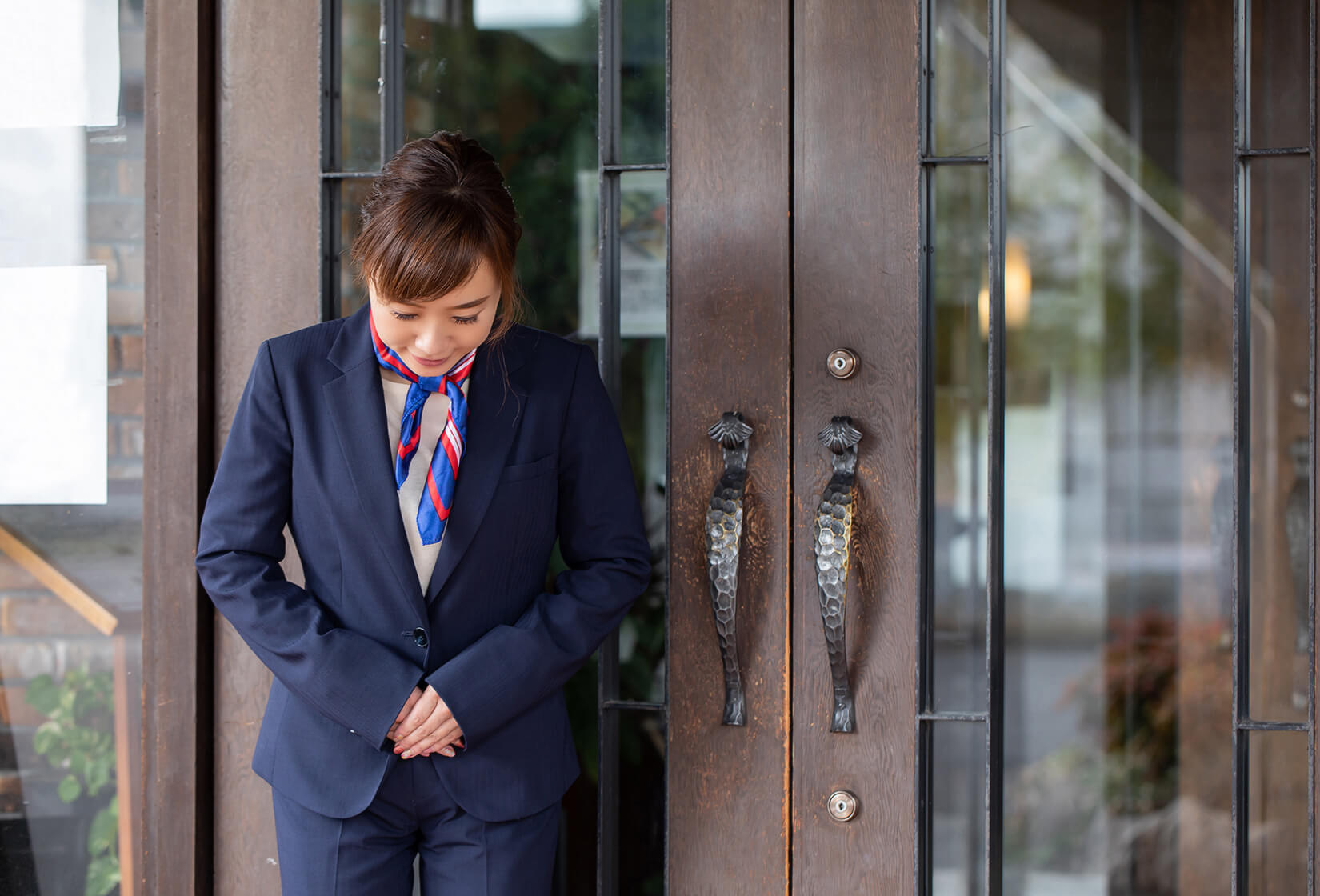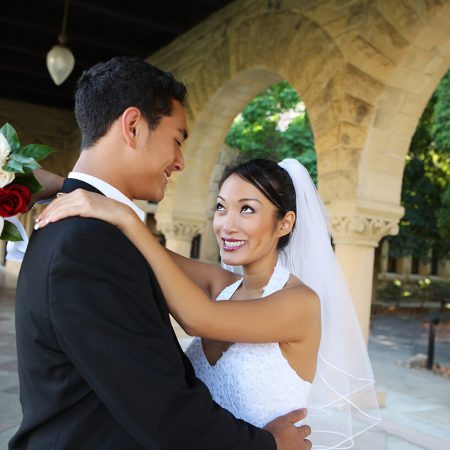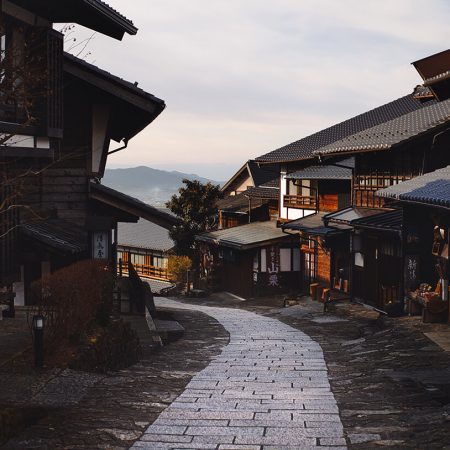Japanese Greetings for Everyday Life

Whether you live in or are just staying in Japan for the short-term, Japanese greetings will be a part of your daily experience. You will hear and eventually use these Japanese greetings, called aisatsu(挨拶), routinely. In some cases, it’s not just what you say, but how you say it. This means body language will also play a role in how you use Japanese greetings throughout the day, based on the situation, and those with whom you are speaking.
The following terms are the basic Japanese greetings you’ll want to learn to feel just a little bit more immersed in the culture.
Table of contents
Japanese Greetings Used Throughout the Day

While out in public, whether it’s work, meeting a friend, or patronizing your favorite small shop or cafe, you may hear or use some of the following general phrases throughout the day:
-
Ohayō gozaimasu(おはようございます)
This the formal way of saying “Good morning,” to be used with greeting someone you either have never met before, or do not have a close relationship with. The shortened, more casual ohayō(おはよう) should only be used with family or close friends.
-
Konnichi wa(こんにちは)
The most well-known greeting in Japanese, it simply means “Hello.” This greeting is used during the afternoon.
-
Konban wa(こんばんは)
This greeting means “Good evening,” and is typically used around or after sundown.
-
Sayōnara(さようなら)
After konnichi wa, this is the second-most well-known phrase. It simply means “Goodbye.”
-
Arigatō gozaimasu(ありがとうございます)
This is the polite way of saying “Thank you.” The more casual arigatō(ありがとう) is also acceptable in most situations.
-
Hajimemashite(はじめまして)
When meeting someone for the first time, this is the phrase used for “Nice to meet you.”
-
O genki desu ka?(お元気ですか)
This phrase can mean “How are you doing?” or “Are you okay?” It is generally said when greeting someone you see on a regular basis.
Japanese Greetings for Life at Home

Whether you are living with a Japanese family, or in a sharehouse in Japan, these are typical phrases you might hear inside the home.
-
Ittekimasu(いってきます)
Usually before leaving the house for work or school, the person leaving will say this to the rest of the house to inform them of the person’s departure.
-
Itterasshai(いってらっしゃい)
This is the phrase used by everyone in the house in response to the person leaving.
-
Tadaima(ただいま)
When you return back to the house, use this phrase to say “I’m home.”
-
Okaerinasai(おかえりなさい)
This phrase is used in response to the person who has returned, meaning “Welcome back.”
-
Itadakimasu(いただきます)
After a meal has been prepared and set at the table, everyone will put their hands together and say this phrase, which loosely translates to “Let’s eat!” or “I will eat now.”
-
Gochisōsama deshita(ごちそうさまでした)
After finishing a meal, this phrase is spoken to offer gratitude to the person who prepared the food. It basically means “I really enjoyed this meal!”
-
Oyasuminasai(おやすみなさい)
At the end of the night, use this phrase to say “Goodnight” to everyone in the house.
Japanese Phrases for Talking on the Phone

Telephone conversations come with a bit of their own vocabulary, particularly for saying hello and goodbye.
-
Moshi moshi(もしもし)
Instead of normal “hello” phrases used face-to-face, this is the greeting used when answering the phone.
-
Shōshō omachi kudasai(しょうしょう おまちください)
Use this phrase to say “Please wait” when placing someone on hold.
-
Omatase itashimashita(お待たせいたしました)
After you return to the phone, this is the phrase you use to say “Thank you for waiting.”
-
Shitsurei shimasu(失礼します)
For the person initiating the phone call, particularly if a request was made during the call, use this phrase to politely end the conversation. It means “Thank you, and sorry for the intrusion.”
-
De wa(では) or mata(また)
When speaking to a friend or someone you are close to, it is okay to use these casual phrases to end a conversation.
Proper Japanese Greetings for the Workplace

Building quality work relationships in the office is key for a pleasant experience as part of Japan’s workforce. Being as polite as possible can show that you are taking all the necessary steps possible to integrate yourself into the culture, and using proper body language also goes a long way to make your efforts known.
It goes without saying that, when entering the office, you should start your day off with one of the “hello” greetings mentioned earlier. When it comes to showing your enthusiasm for your office environment and co-workers, louder is better when using one of these phrases. Start the day off on a high note, or at least a higher volume.
In addition, here are some important Japanese greetings and phrases for the workplace.
-
Yoroshiku onegaishimasu(よろしくおねがいします)
When meeting with clients, exchanging business cards or asking a colleague for a favor, it is recommended to use this phrase, accompanied with a bow.
-
Osaki ni shitsurei shimasu(おさきにしつれいします)
Many employees stay past regular office hours. In the chance that you are the first to leave, use this phrase to politely excuse yourself for the evening. It shows that you acknowledge their hard work and the fact that they are still working.
-
Otsukaresama desu(おつかれさまです)
This form of the phrase can be used as a means of encouragement. When you see a co-worker doing their best, you can say this to show recognition.
-
Otsukaresama deshita(おつかれさまでした)
This is the past tense of the previous phrase, implying that work has been completed. When you announce that you are leaving for the night, your co-workers will typically respond using this phrase.
Most Japanese offices are quite traditional, meaning hierarchical in structure, so minding your manners is of utmost importance. Using these few key phrases can help ensure that you are giving the right impression to your colleagues and, more importantly, your superiors.
Motto Japan, the community platform to support foreigners with the foundation for life in Japan, including Japanese study, job opportunities, and housing service. Motto Japan Media will provide a wide variety of information for Japanese fans all over the world, to create a cross-cultural environment and enrich the life of foreign residents in Japan!













Leave a Reply